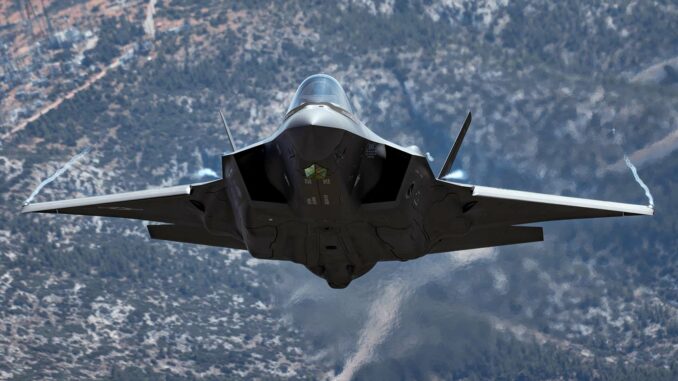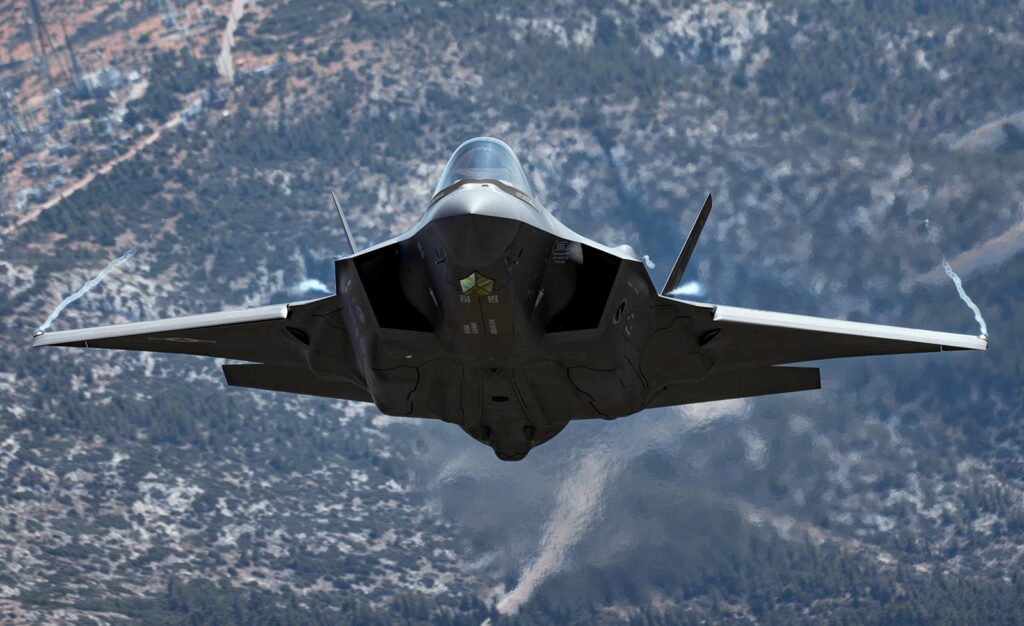
Dutch lawyers in court to halt export of F-35 parts to Israel, alleging complicity in war crimes.
Human rights lawyers have appealed to the Dutch courts to halt the export of F-35 fighter jet parts to Israel. The move comes against a backdrop of heightened tensions between Israel and Hamas, where the use of these aircraft in attacks on Gaza is raising international concerns. Organizations argue that the delivery of these parts makes the Netherlands complicit in potential war crimes committed by Israel. This case raises important questions about the role of arms exports in international conflicts, the responsibilities of exporting states and the limits of the arms trade in relation to human rights.
The ethical dilemma of arms exports: the F-35 case and Israel
In this court case, human rights lawyers are asking the District Court of The Hague to issue an injunction prohibiting the export of F-35 parts stored in a warehouse in Woensdrecht. The main concern is that these aircraft could be used by Israel in attacks on Gaza, potentially implicating the Netherlands in violations of the laws of war. Lawyer Liesbeth Zegveld, representing the organizations, stresses the urgency of stopping these deliveries. The Dutch government, however, weighs its economic interests and diplomatic reputation against these ethical concerns. The government’s lawyer, Reimer Veldhuis, argues for Israel’s right to defense, insisting on respect for the framework of international law. This case highlights the conflict between economic imperatives and ethical and legal obligations in the international arms trade.
Context of the Israel-Hamas conflict
The case takes place against a backdrop of renewed tensions between Israel and Hamas. The October 7 war triggered by Hamas attacks led to military escalation, with calls for mass evacuation of the southern town of Khan Younis by the Israeli army. Thousands of displaced Palestinians sought refuge there, while Israel stepped up its ground offensive and bombed targets in the Gaza Strip. This complex and charged context underlines the international implications of decisions taken by arms-exporting countries, such as the Netherlands, in conflict zones.

Global impact of a court ruling on arms exports
The consequences of a decision in favor of the injunction could be significant. It would set an important legal precedent, calling into question the arms export practices of states in conflict zones. It could also affect international relations, particularly between the Netherlands, Israel and the United States. On the other hand, if the injunction is rejected, this could be interpreted as tacit approval of continued arms exports to conflict zones, despite the risks of violating human rights and the laws of war.
Other relevant information
It is crucial to consider the legal and ethical implications of this case on the international arms trade. Decisions taken here could influence how international standards are applied in similar situations in the future.
The current case in the Netherlands concerning the export of F-35 parts to Israel raises crucial questions about the responsibilities of arms-exporting states in international conflicts. The judgement, expected within two weeks, could mark a turning point in international legislation on the arms trade and its implications for human rights and the laws of war.
War Wings Daily is an independant magazine.